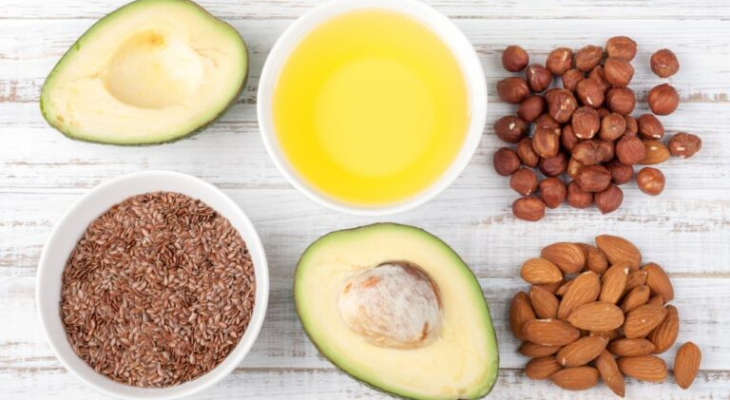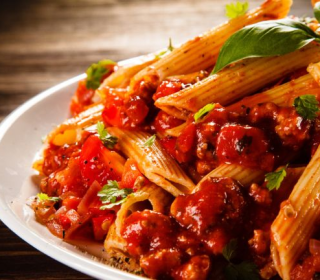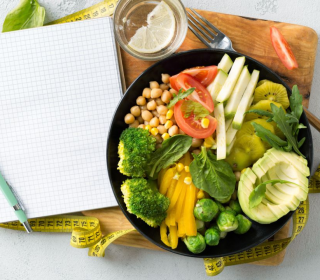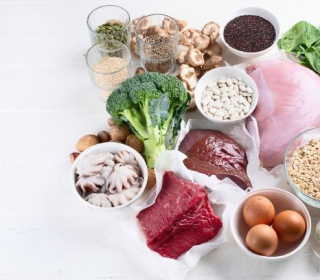The Importance of Food Quality in Fat Loss: Insights from an Expert

It’s not always about counting macros or calories when it comes to losing weight. Kim Bowman reveals that food quality is key to weight loss.
If you want to lose weight, it’s not important to measure macronutrients at each meal.
You should instead focus on the quality of your food. This includes consuming whole, diverse, nutrient dense foods, and avoiding their processed forms.
In order to understand food quality, it is important to recognize the nutrients our body requires for optimal fat loss and avoid those that can disrupt blood sugar balance or gut health.
Food quality is important for weight loss.
The macronutrients (macronutrients), which are essential nutrients, are required by the body in large quantities for major processes including energy metabolism.
There are three key macronutrients–carbohydrates, protein, and fat–which are measured in the form of calories (or kcal). Carbohydrates, protein and fat each provide 4kcal/gram.
Everyone’s daily macronutrient needs are different and dependent on many factors
These macronutrients are essential for every physiological process within the body, from appetite regulation and energy metabolism to immune system function.
You can customize your daily intake of protein, carbs, and fat to achieve specific goals for body composition, such as weight loss or strength.
The daily macronutrient needs of everyone are different and dependent on many factors, including gender, age, basal metabolism rate (BMR), activity level, etc.
Balanced Eating and Macro Counting
Understanding the difference between macronutrients of good and poor quality is one of the main differences between a balanced diet pattern and one that is based primarily on macro-counting.
Why is it important? What is the recommended daily caloric consumption? For example, if you consume 1700 calories, most of them are from refined sugars, fast foods and/or processed food.
Excess consumption of processed food can limit your progress, and cause you to plateau in training.
These foods are not nutritionally beneficial, regardless of whether you reach your daily caloric goal of 1700 calories (or a specific macro-ratio goal).
Excessive consumption of processed food can lead to training plateaus and fat gain because the body does not receive essential nutrients like fibre for healthy digestion or vitamins, minerals and antioxidants to support training adaptations.
To achieve a fitness goal, or to lose weight, you need to know your daily caloric intake, but also what constitutes quality proteins, carbohydrates, and fats in a balanced, nutritious diet.

Choose quality macronutrients
Protein
The 20 amino acids that make up protein are also called the “building blocks” of protein. There are 9 essential amino acid and 11 non-essential.
Non-essential amino acids can be made in the body and do not need to be consumed. Fish, poultry, eggs and meat are all good sources of essential amino acids. Other plant-based proteins such as lentils and beans, nuts and seeds, can also be found.
Researchers have found that eating quality protein sources in the morning, and during the day, such as beans, nuts, or egg whites can increase the rate of calorie burning.
This boost in metabolism is caused by the “thermic effect” of food or a temporary increase in metabolism as a result of processing and storing macronutrients. The thermic effect is largely influenced by foods high in protein.
Carbohydrates
Simple or complex carbohydrates are made up of sugars and starches. Simple sugars or carbohydrates (honey and syrup) are quickly broken down into glucose while complex carbohydrates take longer to breakdown (starches grains and non-starchy vegetables).
The body either uses glucose for immediate energy, or stores it in the liver to be used later as glycogen.
Foods rich in fibre are digested slower than highly processed foods
Dietary fiber, found in whole food like vegetables, fruits, whole grains and whole grains is an important nutrient. It provides substance and bulk to our meals. It increases fullness and slows down digestion. It also helps to balance blood sugar levels to reduce cravings.
Fibre-rich food is digested slower than highly processed foods, which have been stripped of nutrients. Increase your fibre intake by adding vegetables to each meal, and switching processed snacks for fresh fruit.
Read more: Does carbohydrate make you fatter? The trainer’s view
Fats
Unsaturated, trans, and saturated fats are all types of fat. It is important to include quality fats into our diet because not all fats have the same composition.

According to the World Health Organization (WHO), fat consumption should be primarily from unsaturated fats, with a low intake of saturated fatty acids (10%), and no more than 1 percent of total energy intake coming from trans fats.
Unsaturated fatty acids are found in plant-based foods (avocados and nuts), as well as in fatty fishes (salmons, tunas, and herrings). Trans fats include partially hydrogenated oils, which are found in margarine, snack foods and store-bought sweets.









